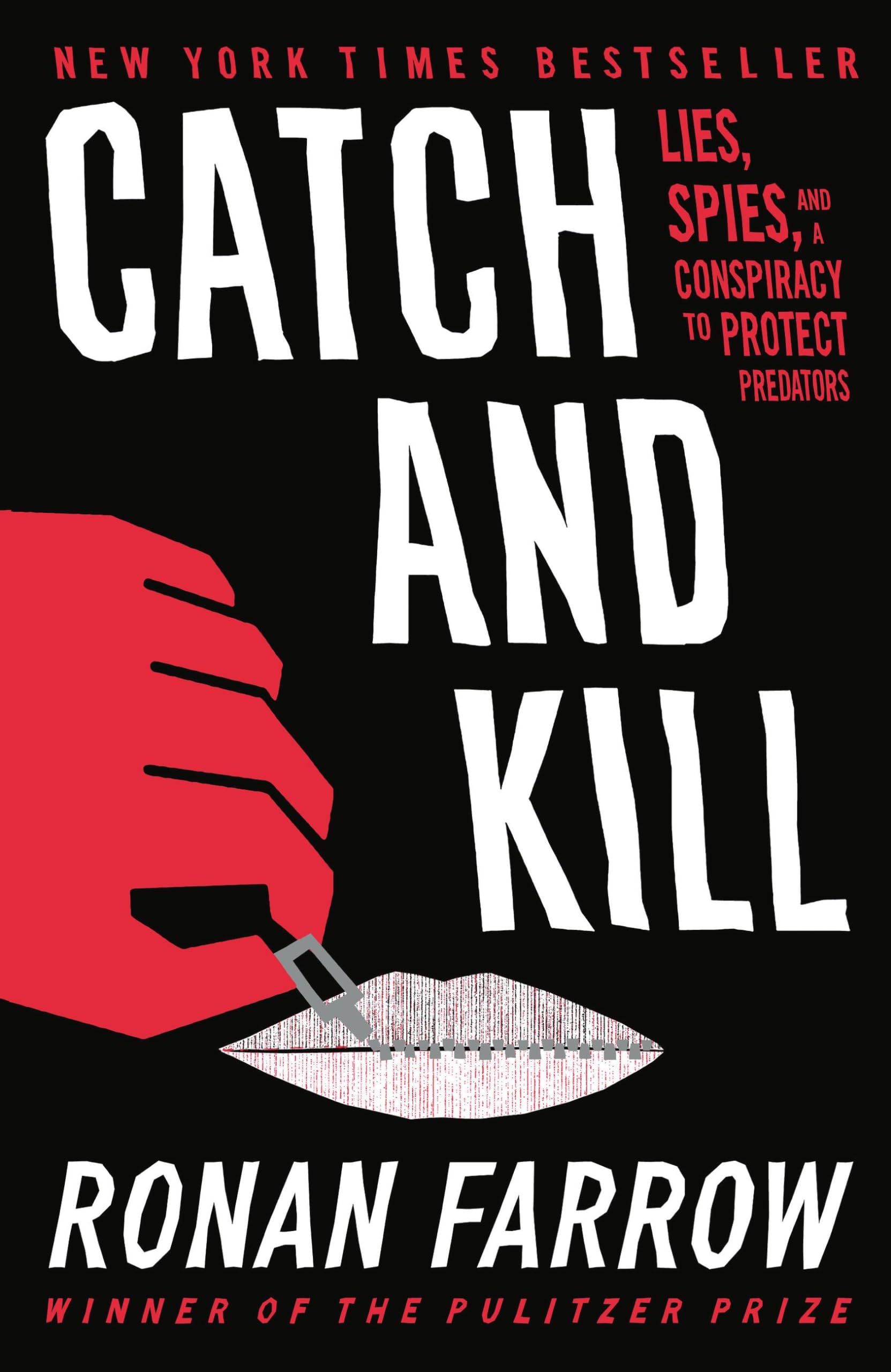If anyone knew me, they would know I don't have a favorite writer. As a reader, I've read a range of genres: fantasy, fiction, non-fiction, classics, romances, comedies.
I feel it's the greatest sin to have a singular favorite.
Many people don't like that I can't come up with a singular favorite. Their faces tell me that it irritates them. I'm not trying to be difficult. I have writers I really enjoy and would return to read from.
But a favorite? The writer I would bend over backward for?
Impossible. I don't have one. I can't have one on principle as a reader.
I will say, a writer I've enjoyed is Ronan Farrow. He's a journalist, utilizing multiple platforms, and a documentarian.His reporting has a certain flow to it. The first long-form writing of his I really sat down and read was Catch and Kill. I actually attended his speaking event at the Steven Tanger Center for the Performing Arts and was able to meet him after, getting my copy of Catch and Kill signed.
 |
| Catch and Kill book cover |
As a student journalist, it was fascinating to be able to actually see a famous journalist in person while getting his book signed.
It was also fascinating to find someone had made their mark despite being held back by their past.
Farrow was born to Mia Farrow, an actress, and to Woody Allen, a writer and director. The younger Farrow's connection to Woody Allen was creating a bit of a roadblock to his journalistic reporting on disgraced director and former co-chairman of MiraMax, Harvey Weinstein.
Allen and Weinstein both have sexual abuse allegations against them.
Allen still claims innocence in his case, Farrow vs Allen, as seen in this BBC article. (The Farrow in this case being Farrow's sister, Dylan Farrow, who alleges Allen molested her in 1992 when she was only seven.)Weinstein has a mess of allegations against him. In Catch and Kill, both in the book format and the podcast format (which acts as an expansion on the book), Farrow goes over these allegations and the complexity of trying to unweave the web surrounding Weinstein.
Farrow explains that the publication he was working with at the time he was first investigating the stories had "caught" his story and, without him knowing, "killed it." In journalism, the term "catch and kill" means that a story has been grabbed, or caught, before publication and blocked, or killed, oftentimes temporarily. In Farrow's case, under the initial publication, the killed story was permanent.
So Farrow left and published his article elsewhere. He wrote about his journalistic investigation into Weinstein here at The New Yorker.
 |
| Surveilled, Farrow's HBO documentary, cover. |
It's not that I don't have a single favorite writer. It's that I have a favorite style of writing and learning. If it's slow or over-explained content, my interest drops. I don't like the writer's approach.
Ronan has an approach to his investigations I can read and/or listen to. I can even listen to his podcast in the background, keeping up with new individuals that are brought on. His books are well-explained and don't drench the common reader in the jargon and general mumbo jumbo of a hyper-specific topic.
Writing isn't about black on white words. There's a certain flair to it and there's a range of tactics for it. I just have a favorite style of writing, which is mostly conversational with descriptions that leave a little to the imagination to put together.
So, giving Ronan Farrow's writing and reporting a chance wouldn't hurt.

No comments:
Post a Comment